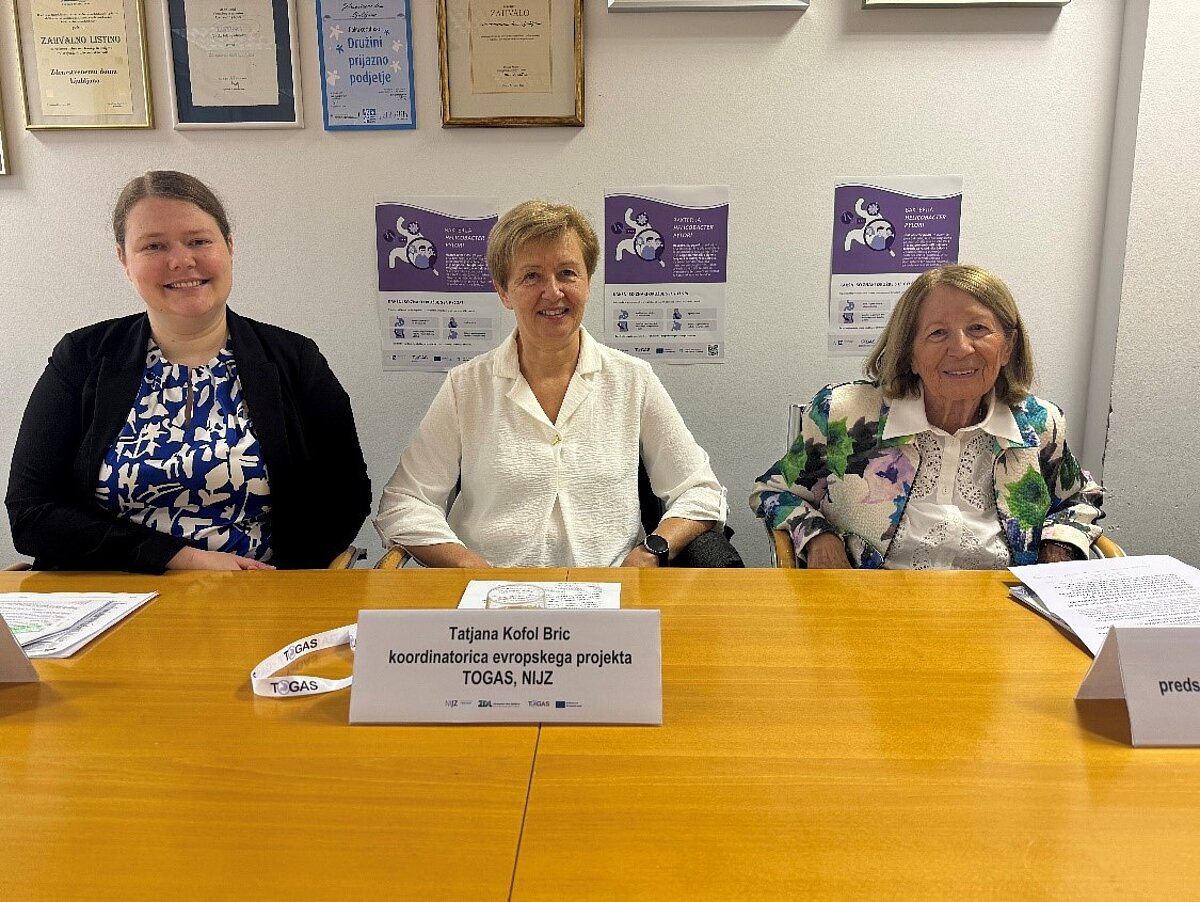
Gastric cancer is a significant global public health issue, with a poor prognosis due to its frequent late detection. In Europe, the five-year survival rate for gastric cancer ranges from 19 to 30 percent. Preventing the development of the disease is the most effective way to reduce mortality. Currently, Europe lacks an effective screening method for H. pylori infection, and there are no endoscopic programs in place for the early detection or secondary prevention of gastric cancer. Consequently, gastric cancer is often diagnosed at an advanced stage when patients undergo tests to investigate symptoms, resulting in low survival rates.
As part of the European TOGAS project, a pilot screening for H. pylori infection is being conducted at the Ljubljana Health Center. A group of young adults (6,200 patients from ZD Ljubljana, aged 30–34) have been invited to participate. Those who test positive for the infection will receive treatment.
The speakers at the press conference were Tatjana Kofol Bric, TOGAS project coordinator from the National Institute of Public Health; Špela Tevžič, a family doctor at the Ljubljana Health Center; and Ivka Glas, president of the EuropaColon association.
Tatjana Kofol Bric presented the TOGAS project and the current results: "At the Ljubljana Health Center, we are conducting research on a random sample of 6,200 patients aged 30–34. Since March of this year, 2,206 people have responded to the invitation, a 35.6 percent response rate. We aim to increase this to 50 percent and encourage everyone invited to participate. So far, over 1,300 participants have been informed that they do not have H. pylori and are not at risk from this key factor in gastric cancer development. Blood tests have shown that 14 percent of participants tested positive for the infection. Around 200 participants have undergone the urea breath test, which confirms an active infection in 88 percent of those who tested positive in the serology."
Dr. Špela Tevžič added: "We've already tested most of those who applied, although some are still awaiting invitations. Everyone who signed up will be tested. Those with a positive urea breath test are treated. So far, 130 participants have completed a 14-day course of quadruple therapy, consisting of two antibiotics, a proton pump inhibitor, and bismuth. To date, 74 participants have taken a follow-up urea breath test, showing a 98 percent success rate for the treatment. In cases where the initial treatment is unsuccessful, a modified regimen is used. We are also tracking the side effects of the treatment. Around half of the participants have reported mild side effects, such as nausea, diarrhea, and rashes, but none have had to discontinue treatment."
Treating the infection significantly reduces the risk of gastric cancer, preventing its development in almost 90 percent of cases.
Ivka Glas, president of the EuropaColon association, highlighted the importance of early detection: "Many people visit their doctor too late, which is why we strongly support H. pylori testing, especially since 80 percent of infected individuals show no symptoms. We believe this screening will contribute significantly to earlier detection and treatment. We will continue working to raise awareness and encourage people to take advantage of preventive testing, as it benefits both them and others who might later develop cancer."
The overall goal of the European TOGAS project is to fill the gap in knowledge by conducting three pilot studies, each focusing on a different aspect of gastric cancer screening and early detection. The results will help policymakers prioritize gastric cancer screening within healthcare systems.
 CONFERENCE
CONFERENCE